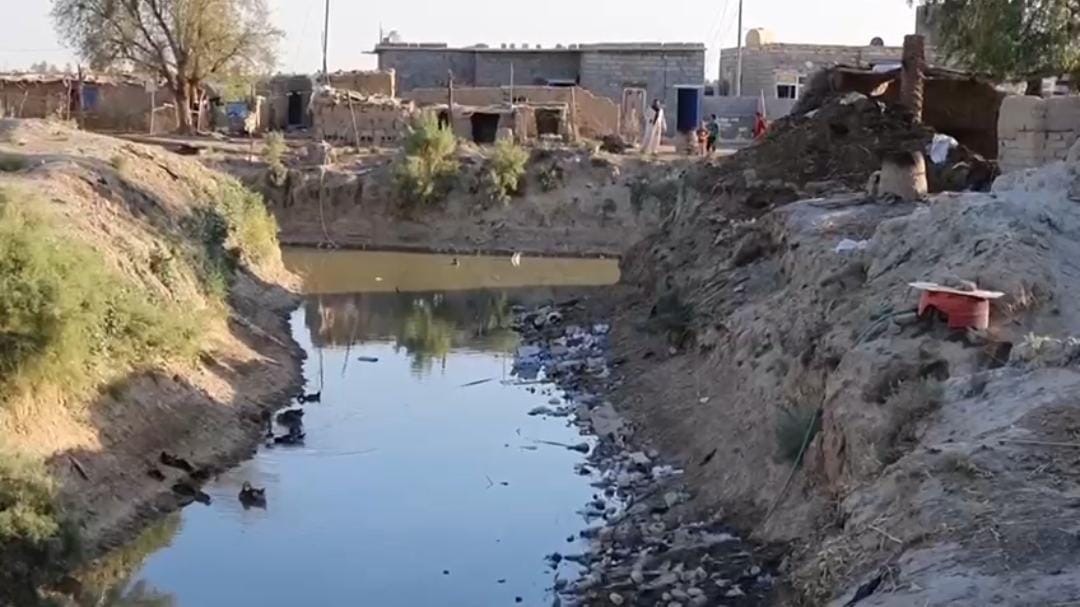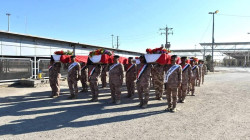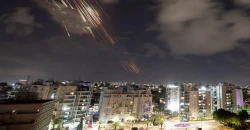Rising displacement and agricultural crisis: Iraq's struggle against the 'water war'

Shafaq News / "Water war" waged by nature and upstream countries supplying Iraq with water resources has compelled nearly a thousand families in the Basra governorate to abandon their rural homes and migrate to urban areas for alternative employment due to drought and water scarcity.
Iraq has been grappling with increasing levels of drought, rising temperatures, diminished water resources, decreasing rainfall, and overall water scarcity since the last century. Poor management of successive governments in addressing the water crisis, and failure to counter the construction of dams by upstream countries like Turkey and Iran, has significantly impacted water reserves and subsequently the agricultural plan that heavily relies on water abundance.
In recent years, Iraq has become one of the top five countries most affected by climate change globally, according to the United Nations, with 70% of its agricultural lands experiencing drought. Approximately seven million Iraqis have been adversely affected by climate change, as stated by Prime Minister Mohammed Shia Al-Sudani in March last year.
Displacement of 950 families
The Directorate of Migration and Displaced Persons in Basra recorded the displacement of 950 families from rural areas to the city center or other governorates during 2023. According to the representative for the displaced families in Basra, Hussein Faraj Mohammed, the number of displaced people is continuously rising, particularly from the villages of Al-Suwayb and Al-Rawta. The area of Nahar Al-Az, north of the governorate, has become almost deserted.
Most of the displaced individuals are now working in construction with no fixed income. Calls have been made to the local government in Basra and the central government in Baghdad to compensate those who left their homes seeking alternative livelihoods.
Displacement of 7,000 families in three governorates
Ali Abbas Jihakir, the spokesperson for the Ministry of Migration and Displaced Persons, stated in November 2023 that Iraq is among the countries affected by desertification due to the scarcity of water resources from neighboring countries in the Tigris and Euphrates river basins. The damage is most significant in the southern regions and some areas of the Middle Euphrates.
The phenomenon of desertification has led to the displacement of a large number of families who depend on agriculture and herding. More than 7,000 families from Basra, Thi Qar, and Maysan have been recorded in the database, and they have been forced to move to areas near cities.
Lack of government support
On his part, Tawfiq Ali, the secretary of the Union of Agricultural Associations in Basra, affirmed the increase in rural-to-urban migration due to water scarcity and salinity, leading to a decline in the production of crops such as wheat, barley, yellow and white corn, and dates from previous levels.
According to Ali, forage crops, such as alfalfa and clover, have also declined. As for dates, most rare and premium varieties like Khadrawi, Shwethi, and Dairi have become scarce. If new planting methods are not adopted, these varieties are at risk of extinction.
Furthermore, Iraq boasts over 600 to 650 date palm varieties, but currently, only about 70 varieties are available. This insufficient supply does not meet even the domestic consumption needs, according to the secretary of the Union of Agricultural Associations.
The direct impact on farmers is attributed to the government's cessation of support for chemical fertilizers by 50% for users of traditional irrigation systems dependent on pumps. Support has been limited to users of modern irrigation techniques, such as pivot irrigation for wheat and barley.
Ali concluded by stating that the subsidized fertilizer price used to range between 325,000 to 350,000 IQD per ton. However, this support ended in December 2023, and the current price has risen to 650,000 IQD per ton.





